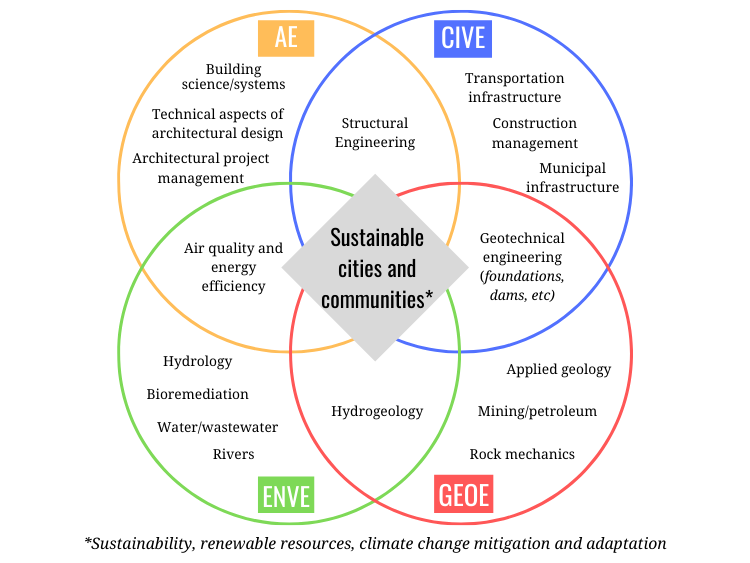Undergraduate degree programs offered
Architectural Engineering, Bachelor of Applied Science (BASc)
Civil Engineering, Bachelor of Applied Science (BASc)
Environmental Engineering, Bachelor of Applied Science (BASc)
Geological Engineering, Bachelor of Applied Science (BASc)
Our students have a big impact on aspects of everyday life, at both the local and global levels. With one of the largest programs of its kind in Canada, we offer small classes, hands-on co-op opportunities at top companies in your desired field – plus opportunities to study abroad. The six co-operative work terms can even go a long way in financing your university education; on average, students earn between $30,000 and $75,000 over the course of their degree program – in fact many of our students graduate with no debt at all.

Learn more about the differences and similarities between the programs in our department with an in-depth comparison chart.
Jobs, scholarships, and how to apply
- What job opportunities are open to students who graduate from our department
- More details about what student life looks like within our department and at the university in general
- What scholarships are available to students in the Faculty of Engineering
- How to apply